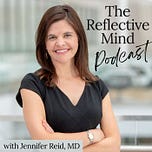In this revealing conversation, freelance journalist and former coach Linda Flanagan describes how youth sports have transformed from neighborhood fun into a $30 billion industry that's reshaping American families. Drawing from her book "Take Back the Game: How Money and Mania Are Ruining Kids' Sports and Why It Matters," Flanagan explores the cultural shifts since the 1970s that have turned children's athletics into high-stakes enterprises demanding extraordinary parental sacrifice.
The Parental Pressure Paradox
Parents now spend an average of 202 minutes (over 3 hours) daily on their children's athletics
36% of families reduce family vacations and struggle to save money due to sports expenses
The College Myth
Only 6-7% of high school athletes go on to play in college, and just 2% of these receive any athletic scholarship money.
Red Flags to Watch For in Youth Sports
Family life revolving entirely around one child's sports schedule
Siblings feeling resentful or left behind
Parents' emotional wellbeing tied to their child's athletic performance
Pressure to specialize in one sport before adolescence
Sacrificing family relationships, activities, friendships, and personal interests
Flanagan's controversial but liberating advice: "Flee the bleachers at the middle school gym, skip the tournament at school across town, resuscitate your own interests and relationships instead."
This isn't about not caring for your children—it's about showing them that:
Their activities belong to them, not you
Adult life has purpose and joy beyond child-serving
Independence and resilience are valuable life skills
Your wellbeing matters too
The Bottom Line
Youth sports can be wonderful for children when kept in proper perspective. The key is resisting cultural pressures that turn childhood athletics into family-consuming enterprises. By maintaining balance, protecting family relationships, and modeling fulfilling adult lives, parents can help their children enjoy sports without sacrificing everything else that makes life meaningful.
Website: lindaflanaganauthor.com
Resources Mentioned
"Take Back the Game" by Linda Flanagan
Aspen Institute Sports and Society Program research
Beyond Stigma Documentary on Women in Collegiate Sports
About Linda Flanagan
Linda Flanagan is a freelance journalist, former cross-country and track coach, and author of "Take Back the Game: How Money and Mania Are Ruining Kids' Sports and Why It Matters." A graduate of Lehigh University with master's degrees from Oxford University and the Fletcher School of Law and Diplomacy, she was an analyst for the National Security Program at Harvard University. She is a founding board member of the New York City chapter of the Positive Coaching Alliance, a contributor to Project Play at the Aspen Institute, and a regular writer for NPR’s education site MindShift. Her columns on sports have appeared in The New York Times, The Atlantic, and Runner’s World, and she is currently co-producing a documentary series on mental health in collegiate women athletes. (A mother of three and a lifelong athlete, Flanagan lives in Summit with her husband and a small menagerie of pets. She is still floating over Malcolm Gladwell’s recent claim that Take Back the Game was one of his favorite books last year.)
Dr. Reid on Instagram: @jenreidmd and LinkedIn and her upcoming book, Guilt Free!
Also check out Dr. Reid's regular contributions to Psychology Today: Think Like a Shrink.
Seeking a mental health provider? Try Psychology Today
National Suicide Prevention Lifeline: 1-800-273-8255
Dial 988 for mental health crisis support
SAMHSA's National Helpline - 1-800-662-HELP (4357)
-a free, confidential, 24/7, 365-day-a-year treatment referral and information service (in English and Spanish) for individuals and families facing mental and/or substance use disorders.
Disclaimer:
The views expressed on this podcast reflect those of the host and guests, and are not associated with any organization or academic site.
The information and other content provided on this podcast or in any linked materials, are not intended and should not be construed as medical advice, nor is the information a substitute for professional medical expertise or treatment. All content, including text, graphics, images and information, contained on or available through this website is for general information purposes only.
If you or any other person has a medical concern, you should consult with your health care provider or seek other professional medical treatment. Never disregard professional medical advice or delay in seeking it because of something that have read on this website, blog or in any linked materials. If you think you may have a medical emergency, call your doctor or emergency services (911) immediately. You can also access the National Suicide Help Line at 1-800-273-8255 or call 988 for mental health emergencies.














Share this post